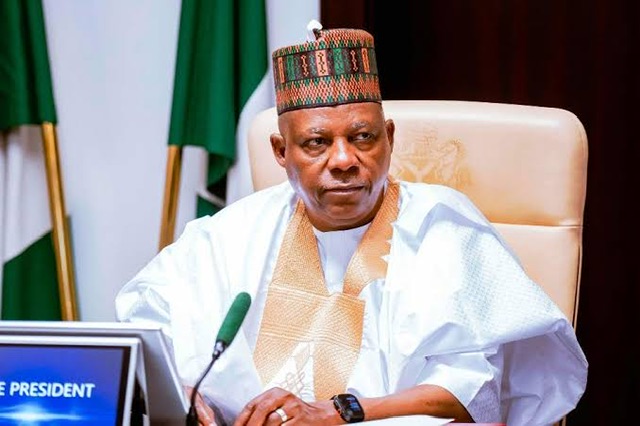
Nigeria’s Renewable Energy Investment Plan to Unlock $410 billion by 2060 — VP Shettima
Nigeria’s renewable energy investment plan under President Bola Tinubu’s administration is projected to unlock more than $410 billion in clean energy opportunities between 2025 and 2060, according to Vice President Kashim Shettima.
Speaking in Abuja on Tuesday at the inaugural Nigerian Renewable Energy Innovation Forum (NREIF) 2025, Shettima said the initiative will position Nigeria and Africa as major players in the global shift towards net-zero carbon emissions.
Nigeria’s Energy Transition Plan: $23 Billion Needed to Expand Access
The Vice President highlighted that over $23 billion is required to expand energy access and connect millions of Nigerians still living in energy poverty.
“Nigeria is blessed with abundant minerals that power clean technologies,” Shettima said. “We bring youth, ambition, and untapped renewable potential to the global energy table.”
He called on public and private sector stakeholders to seize the moment and demonstrate Nigeria’s readiness to lead Africa’s renewable energy revolution.
Targeting 277 Gigawatts by 2060
According to Shettima, Nigeria’s energy transition plan aims to build a power system capable of delivering 277 gigawatts by 2060. Achieving this ambitious goal will require massive investment, innovation, and local capacity building.
He disclosed that more than $400 million in new investment commitments have already been mobilised into Nigeria’s renewable energy manufacturing value chain, covering sectors such as:
- Solar panel production
- Smart metering technologies
- Battery storage and recycling
These projects are expected to create over 1,500 direct jobs across several states, boosting Nigeria’s clean energy industrial base.
“These investments reflect growing global confidence in Nigeria’s renewable energy industrialisation drive,” Shettima said.
Policy Support for Nigeria’s Renewable Energy Investment Plan
Shettima reaffirmed the Tinubu administration’s commitment to building a self-sustaining renewable energy market through strong policy frameworks and regulatory reforms.
He noted that the government is:
- Enhancing incentives for local manufacturing
- Streamlining renewable energy regulations
- Deepening collaboration with state governments and investors
The Vice President also encouraged the private sector and Original Equipment Manufacturers (OEMs) to localise renewable technologies and invest in skills development and knowledge transfer.
“We count on State Governments to champion renewable industrial clusters and drive green growth across the federation,” he added.
NREIF 2025: A Milestone in Nigeria’s Energy Transition
The Minister of Power, Adebayo Adelabu, described the Nigerian Renewable Energy Innovation Forum as a landmark event in the country’s ongoing energy transformation journey.
He emphasised that the Integrated National Electricity Policy aims to improve efficiency, decentralisation, and local solar production capacity.
Similarly, United Nations Deputy Secretary-General Amina Mohammed, represented by UN Resident Coordinator Mohammed Malick Fall, said the forum aligns with the UN’s global vision for sustainable energy.
The UN pledged full support for Nigeria’s renewable energy plan to power homes, schools, and communities sustainably.
Partnerships and International Collaboration
During the forum, the Governors of Jigawa, Bayelsa, and Ogun States, alongside the Rural Electrification Agency (REA), signed several Memoranda of Understanding (MoUs) with private sector partners — including representatives from the Dutch government.
These partnerships signal growing international collaboration and investor confidence in Nigeria’s renewable energy sector.
Conclusion
Nigeria’s renewable energy investment plan under President Tinubu’s leadership marks a major step toward achieving energy independence, green growth, and net-zero emissions.
With over $410 billion in potential investments, robust policy backing, and international support, Nigeria is positioning itself as Africa’s renewable energy hub — turning ambition into sustainable action for generations to come.
About Author
Discover more from BillionBill
Subscribe to get the latest posts sent to your email.
